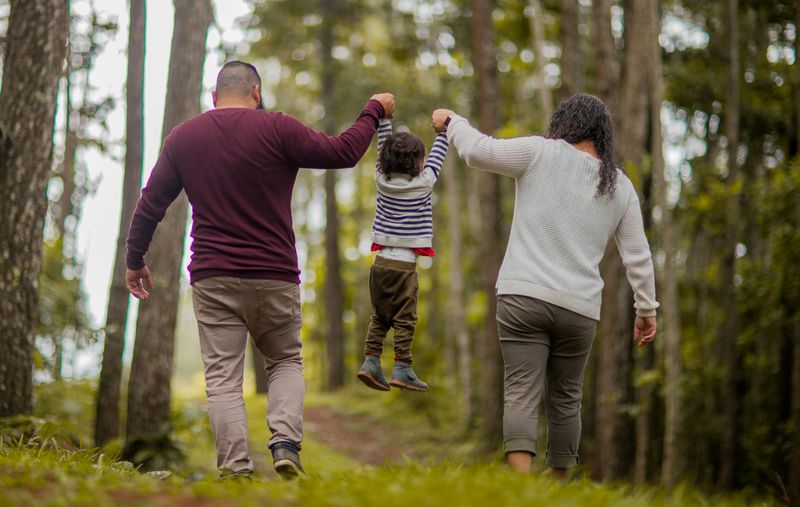Raising children is a whirlwind journey filled with precious moments that zip by faster than we can savour them. As parents, we often get caught up in the daily grind of homework, schedules, and discipline, sometimes missing the forest for the trees. I’ve chatted with dozens of parents whose children have flown the nest, and these are the things they most wish they’d prioritised when their little ones weren’t so little anymore.
1. Creating Unscripted Family Time

Remember when you’d spend hours building blanket forts or chasing fireflies? Those unplanned moments often become our children’s most treasured memories. Not the expensive holidays or elaborate birthday parties we exhausted ourselves planning.
Many parents I’ve spoken with lament how quickly they filled calendars with structured activities, leaving little room for spontaneous adventures. The beauty of unscheduled time is that it allows genuine connection to flourish naturally.
Try setting aside one evening a week where phones are tucked away, and the family simply follows where curiosity leads – whether that’s an impromptu picnic or stargazing from the garden.
2. Teaching Financial Literacy Early

Pocket money isn’t just about rewarding chores – it’s a brilliant teaching tool for lifelong money habits! Too many parents shy away from financial conversations, assuming children aren’t ready for such ‘adult’ topics.
“I wish I’d taught my kids about saving and spending when they were seven, not seventeen,” a father of three told me recently. Simple concepts like delayed gratification and budgeting can be introduced through piggy banks and small allowances.
Even primary school children can grasp the basics of saving for something special versus spending everything at once – lessons that become increasingly valuable as they grow.
3. Preserving Cultural Heritage and Family Stories

“My grandmother’s recipes died with her because I never bothered to write them down,” lamented my friend Sarah. This sentiment echoes among countless parents who realise too late that family histories fade without intentional preservation.
Our cultural backgrounds and quirky family tales form the foundation of our children’s identities. Yet in our rush toward the future, we often neglect to pass down these precious threads of heritage.
Recording grandparents sharing stories, cooking traditional meals together, or creating family trees aren’t just activities – they’re investments in your child’s sense of belonging and connection to something larger than themselves.
4. Modelling Healthy Conflict Resolution

Rowing with your partner about whose turn it is to empty the dishwasher? Your little ones are taking mental notes! Many parents focus on teaching children to behave well but forget they’re constantly demonstrating relationship skills through their own interactions.
“I wish we’d shown our kids that disagreements can be resolved respectfully,” admitted Jamie, whose adult children now struggle with conflict management. Children who witness healthy disagreements – complete with listening, compromising, and apologising – develop emotional intelligence that serves them throughout life.
Rather than hiding all conflicts, consider allowing children to see age-appropriate disagreements and their peaceful resolutions.
5. Nurturing Individual Interests Beyond Achievement

Little Sophia loved insects but was shuttled to piano lessons instead because, well, university applications don’t typically highlight beetle collections! Parents often confess steering children toward “practical” pursuits rather than following their natural curiosities.
The magic happens when we support passions without attaching expectations of achievement or future careers. A child who collects rocks might not become a geologist, but they’re developing observation skills, classification abilities, and genuine joy in discovery.
“My son’s obsession with comic books seemed frivolous until it blossomed into remarkable storytelling abilities,” shared one mother whose son now works in creative writing.
6. Building Resilience Through Natural Consequences

Watching your six-year-old trudge to school in the rain because they forgot their umbrella (again) feels cruel – but might be exactly what they need! Many parents admitted to me they wish they’d allowed their children to experience more natural consequences rather than constantly rescuing them.
The forgotten homework, the missed bus, the broken toy – these small disappointments build emotional muscles that serve children throughout adulthood. Of course, safety always comes first, but manageable setbacks provide invaluable learning opportunities.
“I raised capable adults by sometimes being deliberately incapable myself,” laughed one mother whose grown children now navigate life’s challenges with remarkable poise.
7. Documenting Ordinary Days, Not Just Milestones

Birthday parties and school plays fill our photo albums, but what about Tuesday afternoon cuddles or breakfast table giggles? The ordinary moments often contain the true essence of childhood that slips through our fingers.
“I have hundreds of photos of holidays and special occasions, but I wish I had captured more of our everyday life,” shared Patricia, whose children are now teenagers. Those unremarkable weekday routines – bedtime stories, walking to school, making toast together – form the tapestry of childhood that parents most yearn to remember.
Consider keeping a simple one-line journal or taking quick snaps of those mundane moments that secretly hold your heart.
8. Prioritising Parent Mental Health Without Guilt

“I spent years running on empty, thinking martyrdom made me a better mother. It didn’t,” confessed my neighbour Rachel. The parents I interviewed consistently mentioned wishing they’d taken better care of their own wellbeing instead of wearing exhaustion as a badge of honour.
Children benefit enormously from parents who model self-care and emotional regulation. Taking that yoga class, maintaining friendships, or simply sitting quietly with a cup of tea aren’t selfish indulgences – they’re essential maintenance for sustainable parenting.
Remember that children learn more from watching how we live than from what we tell them to do.
9. Embracing the Messiness of Childhood

Finger painting on walls, mud-splattered wellies on clean floors, and science experiments gone explosively wrong – these messy moments often become our most cherished memories! Yet many parents confess spending too much energy battling childhood’s natural chaos.
“I wish I’d worried less about my pristine cream carpet and more about fostering my daughter’s creativity,” sighed one father whose grown daughter rarely visits his still-immaculate home. Reasonable boundaries matter, of course, but childhood is inherently sticky, loud, and wonderfully disordered.
Consider designating mess-friendly zones or times where the focus shifts from cleanliness to creativity and joyful exploration.